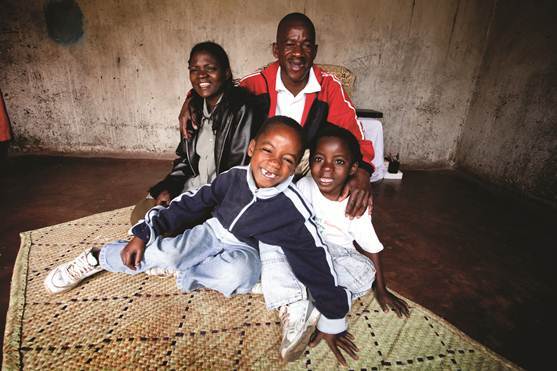For the 17 million women living with HIV worldwide, reducing the spread of the virus, particularly between mothers and children, is a major health concern. For many of those women, help comes in the form of family planning.
Worldwide, 150 million women use hormonal oral or injectable contraceptives to prevent pregnancy.
Chelsea Polis, senior epidemiological advisor at the U.S. Agency for International Development (USAID), visited the Elizabeth Glaser Pediatric AIDS Foundation (EGPAF) to discuss family planning and contraception.
"Highly effective contraceptive methods can prevent unintended pregnancy, maternal/infant morbidity and mortality, and perinatal HIV," saidPolis.
Each year, there are around 86 million unintended pregnancies in sub-Saharan Africa, according to the World Health Organization (WHO). Due to a lack of access to forms of contraception, or the unwillingness of partners to use contraception, many women seek unsafe abortions as a solution. According to the United Nations Population Fund (UNFPA), approximately 74 million women die as a result of unsafe abortions.
Additionally, complications from pregnancy and delivery are the leading cause of death in women of reproductive age in developing countries around the world.
Hormonal contraceptives are a viable option for women seeking to avoid unplanned pregnancy and improve their own health and that of their families. Preventing unintended pregnancies could also reduce the number of infants and children exposed to HIV.
For more information on family planning, check out the United Nations Population Fund family planning page. For information on how EGPAF supports family planning, got to our Where We’re Working page.
Michelle Betton is EGPAF’s Associate Communications Officer, based in Washington, D.C.




